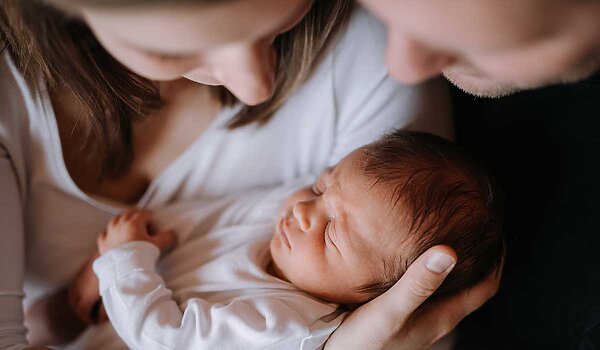![]()
A study has found that specially designed singing classes have been successful in helping mums who have been suffering with postnatal depression.
This comes after a music class was conducted in a housing estate in South London, where a group of 12 young mothers sit in a circle on the floor as their babies cry, crawl and sleep on mats in front of them.
However, the unique thing about these classes is that there are no bells, tambourines, or Wheels on the Bus or Baby Shark, with the group instead working though a series of lullabies, folk and gospel, switching from Spanish to Congolese to Swahili in rounds of four part harmonies.
The whole session was carefully designed to treat the symptoms of postnatal depression, from music selection, to group size, to the room set up itself.
According to the NHS, postnatal depression affects more than one in 10 women within a year of giving birth. Such symptoms can include low mood, persistent sadness, insomnia, withdrawing from other people or problems looking after yourself.
These sessions became part of a study in 2019, which was funded by a £2.6 million grant from the Welcome Trust to research how local arts projects can improve physical and mental health at a larger scale.
This week, results from the study were published in the British Journal of Psychiatry , looking at almost 200 mothers with postnatal depression over eight months. This study saw the women split into two groups, with one assigned the singing course and the other offering a more typical support like community play classes.
All mothers reported a reduction in their symptoms by week 10, but the improvement continued in the singing group for another six months beyond the end of the sessions. The singing group also saw a much lower dropout rate and were likely to say they found a good match for their needs and easy to use.
“bond and social connection”
Melodies For Mums was launched in 2017, as a free weekly class in Southwark, south London, and was based on earlier research suggesting that group singing could reduce anxiety.
Since then, it has expanded for 400 women a year across five London boroughs and online classes in the UK.
Speaking about this, Yvonne Farquharson, founder of Breathe Arts Health Research, a non profit organisation who were behind the idea, had this to say.
“We know that women experiencing symptoms of postnatal depression can struggle to connect with their peers”, she said. “So through singing, we’re getting them to really look at each other and make that kind of bond and social connection”.
Praising the impact of the course, Holly, 30, started it after it was recommended to her by her care co-ordinator.
“I can’t stress enough how much this was a game changer for me”, Holly said. She added that she began to feel unwell in her pregnancy after “my hormones, or something, went a bit wrong”.
Despite seeing an improvement after giving birth to her daughter, Ettie, Holly admitted to feeling “vulnerable and very anxious”.
“Being a new mum is one of the loneliest times, because you’re sort of in this insular bubble,” she says. “And at the very first session here, I walked in and I was like, ‘oh, this is my safe place’. Like, I’m safe here”.
Elsewhere, Dr Rebecca Bind, a research associate at Kings College London, and one of the study’s key authors said: “That’s really important because it shows that the singing intervention is not only effective in the immediacy for depression, but it has a long-lasting impact”.
“I think part of it was women were in the presence of other mothers who were going through the same kind of experiences, even if they were not necessarily having to talk about it,” says Dr Bind. “And on top of that, the act of singing itself can have a very relaxing effect”.
